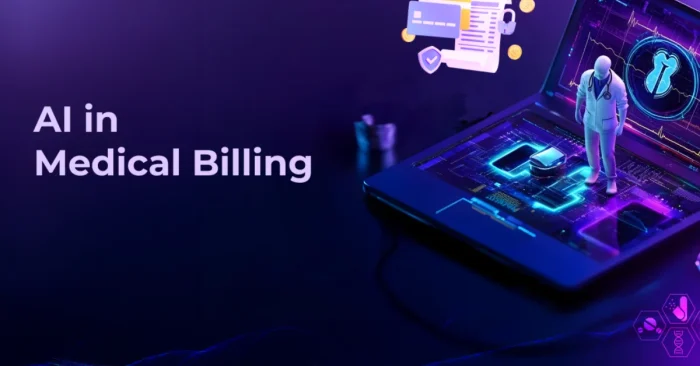Understanding Artificial Intelligence
Artificial Intelligence (AI) has rapidly become one of the most influential technologies of our time. From everyday apps on smartphones to advanced business solutions, AI is powering the modern digital era. It helps individuals save time, boosts business productivity, enhances creativity, and even assists in healthcare and education. This guide offers a full exploration of AI, its importance, benefits, limitations, and real-world applications.
What is Artificial Intelligence?
Artificial Intelligence refers to computer systems designed to perform tasks that typically require human intelligence. These tasks include problem-solving, natural language processing, image recognition, decision-making, and learning from data. AI can be found in chatbots, recommendation systems, autonomous cars, and even medical diagnostics.
Core Areas of AI
AI operates through multiple branches, including machine learning, deep learning, natural language processing, and robotics. Machine learning allows systems to improve over time without being explicitly programmed. Deep learning processes large datasets using neural networks. Natural language processing helps AI understand human language, while robotics combines AI with hardware for automation.
Why AI Matters Today
AI has shifted from being a futuristic concept to an everyday tool. It empowers businesses with data-driven decisions, improves customer service through chatbots, enables personalization in e-commerce, and supports doctors in diagnosing diseases. Its widespread influence shows that AI is not a luxury but a necessity in today’s digital world.
Benefits of Artificial Intelligence
AI offers numerous benefits such as speed, accuracy, automation, personalization, and cost savings. It minimizes human errors, automates repetitive tasks, and provides insights that humans might overlook. In industries like finance, healthcare, and education, AI improves both efficiency and effectiveness.
Limitations of AI
Despite its potential, AI comes with challenges. High implementation costs, lack of transparency in decision-making, and ethical concerns are among the top issues. Moreover, AI lacks human creativity and emotional intelligence, making it a tool that must complement humans rather than replace them.
Applications of Artificial Intelligence in Daily Life
AI in Business
Companies use AI to automate customer service, streamline workflows, detect fraud, and enhance marketing strategies. Predictive analytics powered by AI helps businesses forecast demand, optimize inventory, and personalize user experiences.
AI in Healthcare
AI tools assist doctors with early disease detection, personalized treatment plans, and robotic surgeries. It also speeds up drug discovery and helps manage patient records efficiently. Healthcare AI reduces human error and saves lives through precise diagnoses.
AI in Education
AI-powered tools support personalized learning, smart tutoring systems, and grading automation. Students can use AI apps for research, essay assistance, and language learning. Teachers benefit from AI insights to adapt teaching styles based on student needs.
AI in Content Creation
Writers, marketers, and designers use AI to generate ideas, edit drafts, and produce visuals. AI tools for content writing and design enhance creativity while saving time. They help professionals maintain quality and meet deadlines efficiently.
AI in Entertainment
From personalized music playlists to streaming recommendations, AI enhances entertainment experiences. Gaming companies use AI to create smarter opponents, while film industries rely on AI for editing, special effects, and even script assistance.
AI in Transportation
AI powers autonomous vehicles, traffic management systems, and logistics optimization. Self-driving cars use sensors and AI algorithms to ensure safety, while delivery companies rely on AI to optimize routes and save costs.
AI in Personal Productivity
Virtual assistants like Siri, Alexa, and Google Assistant help individuals manage daily tasks, set reminders, and control smart home devices. AI-driven apps also improve productivity with calendar scheduling, meeting summaries, and task automation.
AI in Security
Cybersecurity systems use AI to detect unusual patterns, prevent fraud, and protect sensitive data. AI-driven surveillance tools are also deployed in public safety, law enforcement, and fraud detection systems worldwide.
Frequently Asked Questions About Artificial Intelligence
1. Is Artificial Intelligence replacing humans?
No, AI is not replacing humans but assisting them. While it automates repetitive tasks, humans are still essential for creativity, empathy, and ethical decision-making. AI works best when combined with human intelligence.
2. What are the risks of using AI?
Some risks include job displacement, data privacy concerns, biased algorithms, and over-reliance on machines. Ethical guidelines and regulations are needed to ensure responsible AI use.
3. How is AI different from machine learning?
AI is the broader concept of creating intelligent systems, while machine learning is a subset where systems learn from data and improve without explicit programming. All machine learning is AI, but not all AI is machine learning.
4. What is the future of AI?
The future of AI is promising. It will continue to revolutionize industries such as healthcare, education, transportation, and entertainment. However, its growth will also demand ethical frameworks, transparency, and human oversight.
Artificial Intelligence is more than just technology; it is a transformation that impacts every aspect of life. By understanding its strengths and limitations, individuals and businesses can use AI responsibly for growth, efficiency, and innovation.






